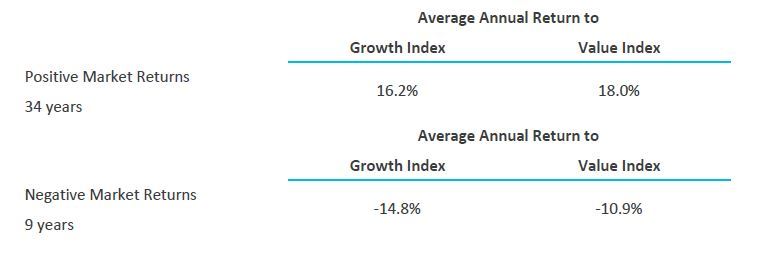October 29, 2018
Chicken Little Spoiler Alert: The Sky is Not Falling (Forever)
Given the recent market volatility, we thought it was a good time to review the reasons to be thankful and not fearful during these times.
Irrespective of the capital market you look at in October, it’s been a rough ride. Canada’s S&P/TSX Composite Index was down 7.2% through the first four weeks ended October 26, followed by 7.5% declines from the S&P 500 (C$), 8.4% declines from MSCI EAFE (C$), and breakeven results from the FTSE TMX Canada Universe Bond Index – but only after bouncing a remarkable 0.38% on Friday.
As is often the case with markets like these, there is no obvious “smoking gun” to explain the volatility. Some point to hikes of both the US Federal Reserve and Bank of Canada’s benchmark rates over the past month – hikes which, while expected, may have breached psychological barriers as they reached 2.25% and 1.75%, respectively. Others fret about global trade disputes and stalling economic growth, even fears of the “R” word. And the unceasing optimism of earnings growth took a kidney punch with market giants Amazon and (Google parent) Alphabet revising down their own estimates.
We’re not here to confirm or dispel the plausibility of all this speculation. The simple reason? When you invest the way we do for our clients, market declines actually don’t matter in the way you think they do. They represent neutral to positive events to us, because at Leith Wheeler, we:
- Invest for the long term. Markets will rise and fall over the short term, but over the long term, they mainly rise. That means that short term volatility – of the 7-8% variety we’ve experienced this month or even the 30-50%+ variety of past bear markets – simply matter less over the long term. What really matters during these periods of market volatility is keeping calm and acting opportunistically.
- Keep calm: The first step to navigating down markets is keeping your head and not selling into the fear. These are the markets when Leith Wheeler’s portfolio managers most earn their keep – by blocking out the market noise and re-focusing client attention back to the long term. As of now, we continue to see strong balance sheets and earnings.
- Act opportunistically: Market sell-offs create dislocations in value, which is very good for deep-research stock pickers like us. The reason is when investors start indiscriminately selling, they drive down the prices of all stocks – good and bad – and create the best chance for us to buy good companies that until now didn’t trade at compelling enough prices.
As an added bonus for value investors, market corrections tend to punish the more “aspirational” (growth) stocks the most as investor confidence falls and brings premium valuations with it. By contrast, a (value) portfolio of quality businesses – that was already trading at modest valuations – has less distance to fall.
We can see this trend in the data: since MSCI started tracking Value and Growth indices in Canada in December 1974, of the 34 calendar years of positive overall market performance, Value slightly outperformed Growth (18.0% versus 16.2% average annual gains). But when markets fell, Value dramatically outperformed Growth, posting (-10.9%) average declines to Growth’s (-14.8%).
Table 1: Performance of Value and Growth in Rising and Falling Markets
Source: MSCI. Data represents returns of MSCI Canada – Value and MSCI Canada – Growth (Large + Mid Cap) Indices.
Diving more deeply into these numbers reveals some significant periods. In 2000, Value outperformed Growth by over 54% by delivering +28% performance compared to Growth’s (-26%)... a feat repeated in 2001 when Value rose an additional +4% to Growth’s further (-42%) decline. And many are surprised to hear that the bull market that emerged from the credit crisis has not, in fact, been an unceasing one: there have been fully 18 corrections of 5% or greater since the market bottomed in 2009.
The fear sown by market headlines can be tempting to indulge, but the sky is not falling (though your portfolio balance may in the short term). Instead of fretting, do yourself a favour and reframe it for what it is: a chance to put your smart money to work, and leave the losses to the Chicken Littles.
By Mike Wallberg, CFA MJ

Recent Posts
- VIDEO: Navigating Dementia: Recognize, Prepare, Plan
- New Trust Reporting Requirements Now in Effect May Catch Some by Surprise
- Leith Wheeler Explainer Series: The Dividend Debate
- Hitting Pay Dirt: The Selling of an Ag Empire
- The Risks of Transactive Memory
- Building Out Your Core with US SMID and Emerging Markets Equities
- Resources for Reconciliation - 2023
- How Could Budget 2023’s Proposed Taxation of Donated Securities Affect Not-for-Profits?
- Taming an Unintentional Portfolio
- Women, Money, and My Holiday Beach Read



